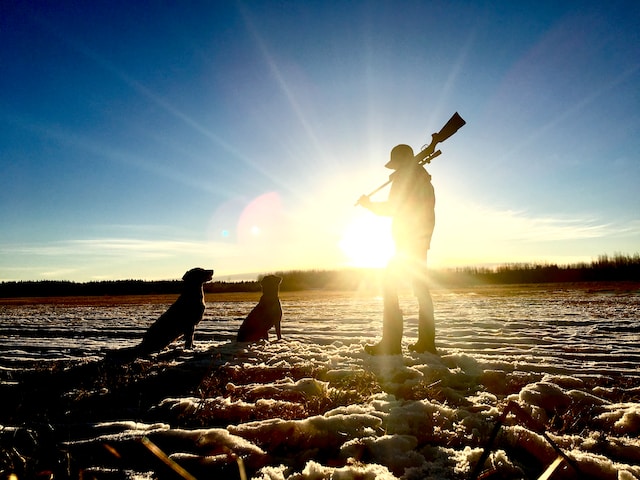“FTCH” in relation to dog ads typically stands for “Field Trial Champion“. This title is awarded to dogs that have achieved a high level of proficiency in field trials, which are competitive events testing the working abilities of gun-dogs in the field. The specifics can vary depending on the country and the kennel club or organisation governing the trials, in Ireland and with the IKC you can find information here https://www.ikc.ie/competitions/field-trials/ For a dog to compete in competitions sanctioned by the Irish Kennel Club, it must be registered either with the Irish Kennel Club or with another Kennel Club that is a member of the Fédération Cynologique Internationale (FCI).
Field trials are designed to test the natural abilities of gundogs in a way that simulates the practical hunting field conditions. Dogs are tested on various skills such as marking (the ability to remember where game falls), retrieving, obedience, and working in tandem with a handler.

FTCH Breeds
Breeds that commonly participate in these trials include Retrievers, Spaniels (Springer), Pointers, and Setters. In some instances Labrador can participate.
Advertised as FTCH
When a dog is advertised as an “FTCH” or “Field Trial Champion,” it implies that the dog has been highly trained and successful in these competitive events, showcasing a high level of skill and training in field work. This can be particularly appealing to those looking for a dog for hunting, field sports, or as a potential breeding prospect for working or sporting lines. We do recommend you check these claims when you visit a dog that you are thinking of purchasing.
What makes a good gun dog
Certain breeds are more predisposed to being natural gun dogs, but all dogs can be trained to perform these actions (with enough patience). Here are 12 key traits that are often sought after in a good gun dog:
- Strong Retrieving Instinct: This is crucial for retrieving game without damage. Dogs with a natural inclination to fetch and carry objects are typically easier to train for retrieving game.
- Keen Sense of Smell: A strong sense of smell is vital for tracking game. This is especially important for breeds like Pointers and Setters.
- Steadiness and Patience: A good gun dog should be able to sit quietly and wait for commands, often for extended periods. This is important in both field trials and hunting situations.
- Trainability and Intelligence: The dog should be eager to learn and capable of understanding and following complex commands. Intelligence is key for adapting to different hunting scenarios.
- Good Temperament: A calm and even temperament is essential. The dog should be able to handle the stress of a hunting environment without becoming overly excited or nervous.
- Physical Endurance and Stamina: Hunting can be physically demanding, and a good gun dog needs to have the endurance and strength to traverse different terrains and work for long periods.
- Obedience and Responsiveness: The ability to respond quickly and obediently to the handler’s commands is crucial, especially in potentially hazardous hunting environments.
- Soft Mouth: This refers to the ability to retrieve game gently, without damaging it. This is particularly important for Retrievers.
- Water-Friendly: For breeds like Retrievers, being comfortable in and around water is important, especially for retrieving waterfowl.
- Courage and Boldness: A gun dog should not be easily frightened by loud noises like gunshots or unfamiliar situations in the field. This can be tested when the dogs are a young age by seeing how the reach to sudden sounds.
- Loyalty and Bonding: A strong bond with the handler enhances the dog’s willingness to work and its ability to work in sync with the hunter. An early start to training is essential here to reinforce the this bond.
- Health and Robustness: Good overall health and resistance to diseases and injuries are important, considering the often challenging conditions in hunting. When breeding dogs screening for breed specific genetic issues is highly recommended.
